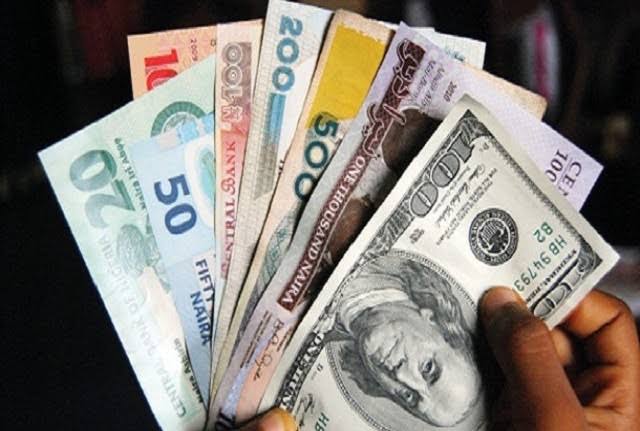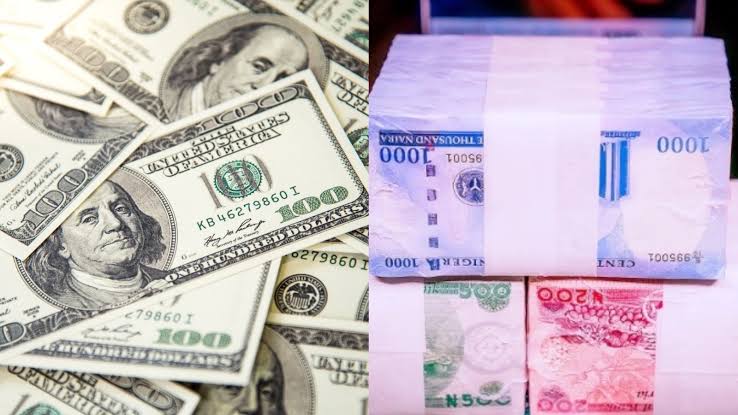Dollar to Naira Exchange Rates: CBN, Bank, and Black Market Rates on October 7, 2023.
The Nigerian naira has been navigating turbulent waters in recent months, grappling with economic challenges stemming from fluctuating oil prices and a shortage of foreign exchange. These factors have precipitated a significant depreciation of the naira against the US dollar in both official and parallel markets, creating a notable divergence between the two exchange rates.
In this comprehensive report, we endeavor to provide you with the latest updates on the dollar to naira exchange rates within the Central Bank of Nigeria (CBN) and bank markets. Additionally, we will delve into the underlying factors contributing to these fluctuations and draw comparisons with the frequently cited black market rates.
Current Dollar to Naira Exchange Rate According to CBN
The CBN exchange rate serves as the official rate at which the Central Bank of Nigeria conducts foreign currency transactions with authorized dealers, including banks and bureau de change (BDCs). The CBN meticulously manages the supply and demand of foreign exchange within the country through a range of policies and interventions.
As per the latest information accessible on the CBN’s official website, the exchange rate for the dollar to naira on October 7, 2023, is as follows:
- Buying: 767.00 NGN for $1
- Selling: 769.00 NGN for $1
This signifies that the CBN sells one US dollar for ₦769.00 and purchases one US dollar for 767.00 naira from authorized dealers.
Dollar to Naira Exchange Rate in Banks
Conversely, the bank exchange rate reflects the rate at which commercial banks buy and sell foreign currencies to their clientele. Banks hold licenses as foreign exchange dealers and obtain foreign currency from a variety of sources, including the CBN, remittances, exports, and investments.
It is crucial to acknowledge that bank exchange rates may exhibit variance among different banks, contingent on factors such as the availability of foreign exchange, demand, and profit margins. Nevertheless, banks are mandated to adhere to the CBN’s guidelines and regulations governing forex transactions.
Based on information obtained from Investors King, a reputable digital business news platform, the average bank exchange rate for the dollar to naira on October 7, 2023, stands at:
- Buying: 790 NGN for $1
- Selling: 787.70 NGN for $1
This implies that banks vend one US dollar for 787.70 naira and purchase one US dollar for 790 naira from their clients.
Comparison with the Black Market Exchange Rate
The black market exchange rate is determined by unofficial dealers, including street vendors and online platforms, who engage in the buying and selling of foreign currencies. This rate is frequently influenced by factors such as speculation, hoarding, panic buying, and other variables not regulated by the CBN.
Traditionally, the black market rate tends to surpass both the CBN and bank rates, reflecting the scarcity and volatility of foreign exchange in Nigeria. Many Nigerians commonly reference the black market rate as it is perceived as a more accessible and realistic gauge.
According to Investors King, the black market exchange rate for the dollar to naira on October 7, 2023, is as follows:
- Buying: 1000 NGN for $1
- Selling: 1005 NGN for $1
This signifies that black market traders sell one US dollar for ₦1005 and purchase one US dollar for ₦1000 from their clients.
Factors Influencing the Dollar to Naira Exchange Rate
A multitude of internal and external factors play pivotal roles in steering fluctuations in the dollar to naira exchange rate. Several of these influential factors encompass:
1. Oil Prices: Nigeria’s economy hinges significantly on revenue derived from oil exports. Consequently, variations in global oil prices exert substantial influence on Nigeria’s foreign exchange earnings.
2. Forex Demand: Nigeria grapples with incessant high demand for foreign exchange to facilitate the importation of goods and services, service debts, repatriate profits, and meet other financial commitments. This persistent high demand frequently surpasses the available supply, placing pressure on the naira’s value.
As currency markets remain dynamic and ever-evolving, these factors continue to exert their influence on the exchange rate of the dollar to naira. Remaining informed about the latest developments is paramount for making well-considered financial decisions in these challenging times.







